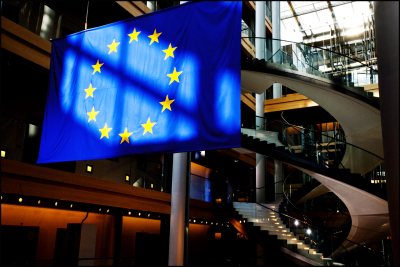This piece was originally published in shortened form on EU Observer.
There have been howls of indignation across Europe since former European Commission President José Manuel Barroso’s spectacularly ill-timed announcement that he is to join Goldman Sachs as a non-executive chairman and advisor on Brexit.
These cries of ‘foul’ will only grow louder and more frequent in the coming years. The ‘revolving door’ between the public sector and the private consultancy has been gathering pace in Europe and beyond. In the U.S., for example, in 1974, 3% of retiring U.S. senators went on to become lobbyists; in 2012, nearly half of them did.
There is no turning back this tide, thanks to the way demographics and career paths in western democracies have undergone significant changes.
Our leaders are getting younger and so find themselves on the political scrapheap at an age when most people are at the apex of their careers. David Cameron, now licking his wounds on the backbenches, is 49; Barack Obama will be a sprightly 55 when he vacates the White House next year; Matteo Renzi, who may see his premiership derailed by yet another referendum this autumn, is a spring chicken at 41. At the peak of their powers, they are unlikely to content themselves with long twilight years of golf and after-dinner speeches.
The other driver is the professionalisation of politics. The multiplication of special advisor and political communications posts have become a springboard for the most ambitious to both cabinet and front bench positions. Once these political insiders have tumbled from the greasy pole, they find themselves with nothing to offer but their ‘strategic advice’ and personal networks to the consultancies and corporations who peddle such things.
So the phenomenon is here to stay, which only means that the conflicts of interest, which can and do arise need to be rigorously policed.
Much of the focus in the Barroso case has been on the ‘cooling off’ periods between leaving office and taking up a private sector post. This is a miserly 18 months for former Commissioners, in contrast to the five-year ban that applies to cabinet ministers in Canada, but looks almost stringent in comparison to the complete absence of cooling off periods for Members of the European Parliament (MEPs).
As political career paths shift, the Commission must revisit these rules. However, debates about whether 18 months or two years or five years is the right standard only side-track us from the real issue: what the Commission can do to sanction cases where it feels that its integrity has been jeopardised by the actions of former officials. For example, in Barroso’s case it is not clear that an announcement to cash-in on the Brexit dilemma would have been in any better taste after twenty-four rather than twenty months.
First, there needs to be an element of due process rather than the trial by media often occasioned by these scandals. This means a rapid decision by the Commission’s ethics committee on this and any new move. But rather than the current old boys’ club appointed by President Juncker, this body should be a reformed, truly independent committee whose meetings, decisions and reasoning are a matter of public record.
Second, if this committee finds there has been a breach of the standards of integrity and discretion demanded of former Commissioners by the founding EU treaties, it should be able to propose meaningful sanctions. In cases like this, where public service is being monetised, the obvious answer is to hit them in the pocket. At a minimum, this means the suspension of ‘transition allowances’ where former Commissioners are paid up to 60% of their salary, to avoid the prospect of the European taxpayer topping up a generous Goldman Sachs stipend.
More importantly, officials who breach ethics standards should not be able to lobby without consequences. Should the ethics committee find against him, it should be clear that Mr Barroso is not welcome in Commission circles in his new capacity.
This should be part of a more general policy that lobbyists who do not play by the rules, whether by refusing to sign up to the EU lobby register or by breaching the Commission’s own standards of integrity, are denied access. This would be a powerful sanction that would make both former Commissioners and those who hire their services think carefully about the value of such exchanges.
Given the recent history of the EU and his part in it, it is not clear what Mr Barroso was thinking in accepting this offer. As a former Maoist, perhaps he had in mind the Chinese leader’s dictum that “everything under heaven is in utter chaos: the situation is excellent”. It does however demonstrate the main risk of the revolving door: that political judgement is skewed by considerations of personal advantage. That risk needs to be dealt with forcefully by the Commission, which has the most to lose from the career ambitions of its former figureheads.




